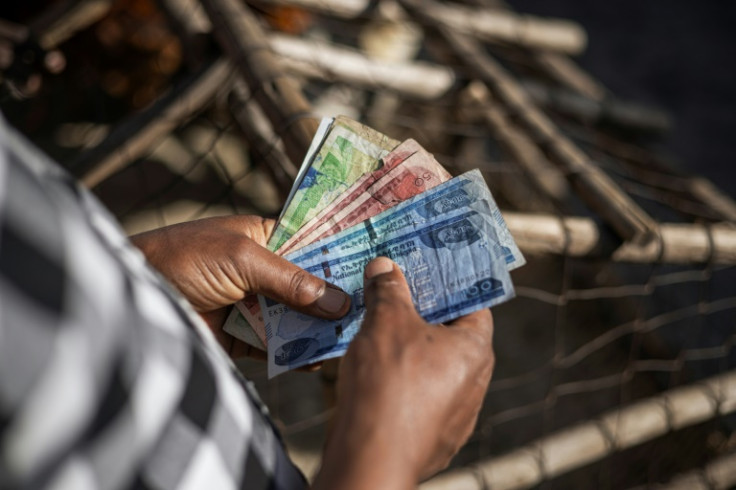
Ethiopia's central bank announced on Monday that it was easing curbs on its foreign exchange regime, a move which saw the value of the local currency slide by about 30 percent.
The major reform was unveiled as the deeply indebted country awaits a multi-billion dollar deal on crucial funding from the International Monetary Fund after long and fraught negotiations.
There was widespread speculation that Ethiopia, whose economy is tightly controlled by the state, would have to devalue its currency, the birr, as a condition of IMF aid.
The National Bank of Ethiopia announced a series of foreign exchange reforms which it said involved "significant new policy changes".
The first measure was a "shift to a market-based exchange regime", the NBE said in a statement.
"Banks are henceforth allowed to buy and sell foreign currencies from/to their clients and among themselves at freely negotiated rates, and with the NBE making only limited interventions to support the market in its early days and if justified by disorderly market conditions," it said.
The US dollar was buying 74.73 birr and selling at 76.23, the leading Commercial Bank of Ethiopia said in a statement published on X. On Friday the buying rate was 57.48 and selling 58.64.
Until now, the rate for the birr, a non-convertible and non-exportable currency, was set daily by the NBE.
The central bank also announced Monday it would allow foreign exchange to be retained by exporters and commercial banks "thus substantially boosting FX supplies to the private sector".
Ethiopian Prime Minister Abiy Ahmed said earlier this month that he was expecting about $10.5 billion in financial aid in the coming years once the country wraps up its negotiations with international lending institutions.
The Horn of Africa nation, battered in recent years by several armed conflicts, the Covid pandemic, and climate shocks, has been engaged in drawn-out talks seeking to secure a support programme from the IMF.
Ethiopia has about $28 billion of external debt and is also grappling with sky-high inflation and a shortage of foreign currency reserves.
The landlocked country's credit rating was downgraded to a partial default in December by international agency Fitch after it missed a $33 million coupon payment on a Eurobond.
The two-year conflict in the northern Tigray region which ended in November 2022 led to the suspension of numerous development aid programmes and budget assistance.
When he took office in 2018, Abiy pledged to embark on reforms of Ethiopia's closed and state-dominated economy, but little has changed since then.







